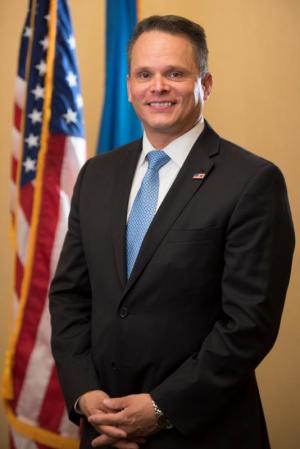If we build a bigger pool, we can spread risk over larger population
Under the Affordable Care Act, states were required to create health insurance marketplaces for people who weren’t eligible for coverage at their workplaces, were too young for Medicare, made too much money to be eligible for Medicaid, had aged off their parents’ plans, or were self-employed.
The first year of enrollment for Delaware’s marketplace began in the fall of 2013, with three insurers offering 21 health plans for consumers. Despite the challenges that accompanied the launch of HealthCare.gov that fall, more than 23,000 Delawareans enrolled for coverage, which began Jan. 1, 2014.
Since that first year, Delaware has experienced five more enrollment periods, reaching a peak of more than 28,000 for 2016. But double-digit premium increases led to an erosion of enrollees, especially among those not eligible for federal financial assistance to help pay their monthly premiums. Insurers faced large claims from people who hadn’t been insured in years and needed extensive - and in some cases, life-saving - medical care. Insurers couldn’t reach the profitability sweet spot, and they retrenched, reducing their plan offerings, and in some cases, exiting the marketplace altogether. For 2019, only one insurer remained on Delaware’s marketplace, offering eight plans. Enrollment dropped to 22,562, the lowest total since 2015.
For Delawareans who owned small businesses or who were thriving in the gig economy as IT consultants, hair stylists, private transportation service drivers or home improvement specialists, the premium increases made coverage unaffordable over those six years. Those making up to $48,560 for an individual, or up to $100,400 for a family of four are eligible for tax credits on the marketplace, but the credits diminish greatly for people making more than $36,000 as an individual or about $75,000 as a family of four.
A freelance writer, a house painter or coffee shop owner made too much money to be eligible for financial assistance with their premiums on the marketplace, but suffered sticker shock when they saw the monthly premiums and the deductibles skyrocket. For too many, they made the conscious decision to forgo health insurance and pay for medical care as they needed it, hoping that a serious illness or accident wouldn’t throw them into financial ruin.
In an innovation economy, we can’t have health insurance costs that push coverage out of the reach of people who are moving from job to job, or who want to retire early. And for those who take the bold step to move from employee to small business owner, we need a marketplace with health insurance that they can afford, too.
Working with legislators and other stakeholders, the Department of Health and Social Services and the Department of Insurance joined a group that looked at options for bringing down the cost of premiums for Delawareans who buy insurance for themselves or their families, making premiums more affordable for more Delawareans. The most workable solution became what is called a reinsurance program, with a target of reducing premiums by 20 percent.
Like many things in health care, reinsurance is a complex process - contingent on approval by the federal government - but essentially it would work this way: The State of Delaware would use actuarial modeling to determine the level of reinsurance financing needed to achieve that 20 percent premium reduction. From there, the Department of Insurance would collect an assessment from the Health Insurer Carriers to fund the reinsurance program, and the Delaware Health Care Commission would administer the program.
During a coverage year, if a claim from an enrollee reached a certain predetermined figure, the insurer would pay a specific percentage and the reinsurance program would cover the rest - up to a predetermined cap. That would reduce the impact of a high-cost claim on premiums for the entire group the following year. The cap also would incentivize the insurance carriers to continue managing the health of their members.
The expectation is that as premiums decrease, more Delawareans would opt to buy insurance and those who currently have coverage would keep it. If we can succeed in building a bigger pool of enrollees, we can spread the risk over a larger population. This can help create more stability and predictability for both the insurers and the members. The last few years of volatility have been challenging for everyone, but especially for those Delawareans with medical conditions who cannot risk being without coverage, but who struggle to pay the premiums each month.
The reinsurance program requires not only the approval of the federal government, but also the approval of Delaware’s General Assembly.
House Speaker Pete Schwartzkopf is the prime sponsor of House Bill 176, joined by representatives Valerie Longhurst, John Mitchell, Paul Baumbach, David Bentz and Mike Ramone, and President Pro Tempore Sen. David McBride, and senators Nicole Poore and Bryan Townsend. We hope the legislation will have broad support as another tool to increase access to health insurance for Delawareans, especially those who have embraced the innovation economy.
Dr. Kara Odom Walker is Cabinet Secretary of the Department of Health and Social Services and a board-certified and practicing family physician. Trinidad Navarro is Commissioner of the Department of Insurance.























































